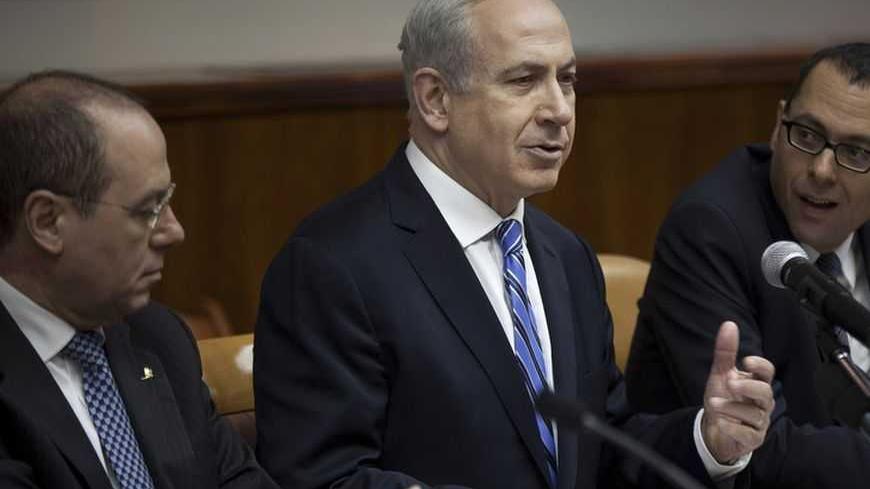
Tzipi Livni’s New Role Amounts to Sleight of Hand
Subscribe for less than $9/month to access this story and all Al-Monitor reporting.
OR
Create an account for a 7-day trial to access this article and all of AL-Monitor.
By entering your email, you agree to receive ALM's daily newsletter and occasional marketing messages.














![Israeli Defence Minister Moshe Arens and Israeli Prime Minister Benjamin Netanyahu at a news conference in Tel Aviv February 28. Arens said fighter planes had already raided key Hizbollah targets in Lebanon. The Israeli assault came in response to a roadside bomb that went off near an Israeli convoy in the south Lebanon occupation zone killing [Brigadier-General Erez Gerstein,] and a Radio Journalist and two soldiers.
**DIGITAL IMAGE** - RTXISY0](/sites/default/files/styles/article_header/public/almpics/2013/02/1-RTXISY0.jpg/1-RTXISY0.jpg?h=2d235432&itok=zV6oPUdm)

